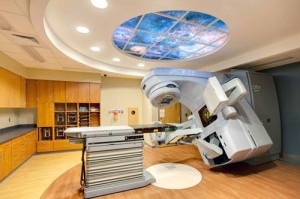 Radiation Oncology is one of the three branches of oncology in Western medicine, working in conjunction with surgical and medical oncology in the treatment of cancer. The three branched oncology system has become the standard in the United States, though in many countries all aspects of cancer treatment are handled by one more general practician known as a clinical oncologist. Radiation plays a significant role in both cancer treatment and palliative alleviation of pain associated with cancer.
Radiation Oncology is one of the three branches of oncology in Western medicine, working in conjunction with surgical and medical oncology in the treatment of cancer. The three branched oncology system has become the standard in the United States, though in many countries all aspects of cancer treatment are handled by one more general practician known as a clinical oncologist. Radiation plays a significant role in both cancer treatment and palliative alleviation of pain associated with cancer.
Radiation work requires expansive technical, medical, and scientific knowledge, as radiation has a significant purpose but can also be lethally dangerous if patients are exposed at too high of levels, for too long, or too frequently. After all, certain types of radiation can cause cancer. With it being such a high gravity position, radiation oncologists face more extensive training than do surgical or medical oncologists, required to do an internship and four years of residency after school to become certified in their field. After passing a rigorous test issued by either the American Board of Radiology or the American Board of Physician Specialties, a certification is granted to aspiring radiation oncologist, which they must renew after ten years of practice.
Other nations with programs for radiation oncologists include Canada, the United Kingdom and Ireland, Iran, Nepal, Australia, and New Zealand, though certification procedures vary from place to place. Regardless of place, radiation oncologists serve an important role in the medical field. Across the globe, there are over 100 types of cancer, which account for nearly 15% of all human deaths. Cancer is an insidious and lethal illness, with intense associated pain and emotional hardship, and radiation is the best accessible treatment and pain relief option for cancer patients.
